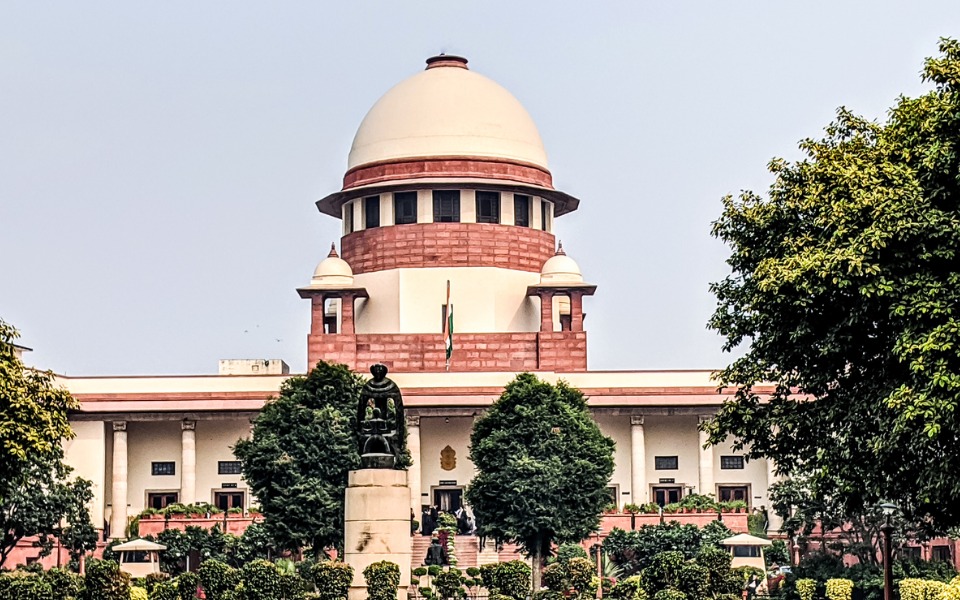
SC stays Orissa HC order asking state to allow only COVID-negative migrants

The Supreme Court on Friday (May 8) stayed an interim order passed by the Orissa High Court asking the state government to ensure that only migrants who tested negative for COVID-19 were allowed to enter Odisha.
A bench headed by Justice Ashok Bhushan stayed the high court order that was passed on May 7 and issued notice to the concerned parties on the appeal.
Solicitor General Tushar Mehta told the bench, also comprising Justices S K Kaul and B R Gavai, that all the stranded migrants were screened while boarding trains and only those who had been found asymptomatic were allowed to proceed.
Mehta referred to the April 29 order of the Union Ministry of Home Affairs and the guidelines issued thereafter as per which moving persons would be screened and those found asymptomatic would be allowed to proceed.
Related News: Migrant workers skip quarantine in Odisha after arriving from Gujarat
“We are of the view that the order of the Government of India dated April 29, 2020 provides ample protection. It appears that before the High Court the order of the Government of India dated April 29, 2020, and the guidelines were neither brought into the notice nor were under challenge,” the bench said in its order.
“In view of the aforesaid, we stay the interim order dated May 7, 2020. We further clarify that the stranded migrants shall be dealt with as per the order/guidelines of the Government of India dated April 29 read with the guidelines dated May 1 issued thereunder by the Government of India, Ministry of Home Affairs,” the bench said.
In its appeal, the Centre said, “The high court, by way of the impugned order, has without hearing the Union of India, has passed an interim order mandating the COVID-19 testing of every migrant before boarding the conveyance. The plea added that the order may have a “cascading effect” on the migrants of other states as well.
It claimed that the order, “apart from being unworkable”, failed to notice the standard operating procedure already being followed by the Centre and the state governments.
Related News: After return of migrants, Odisha records 20 COVID-19 cases in single-day spike
“It is humbly submitted that impugned order clearly impinges upon the executive domain and creates an unreasonable and impossible to perform pre-condition on part of the governments and the migrant workers who wish to travel back to their native places.”
It said the high court order ignored the nature of pandemic and the “delicate handling of the situation by the executive, after consideration of all possible factors.”
The appeal said the Centre, in conjunction with the state governments, was taking all possible precautions at the stage of boarding, during travel, after de-boarding and subsequent quarantine.
The Centre told the apex court that after completion of a strict 40-day lockdown, in which no inter-state travel of any kind was permitted, a decision was taken that migrant workers, pilgrims, tourists, students and other persons stranded at different places would be allowed to travel back to their native places.
Related News: Returning migrants be responsible, rule-breakers will be punished: Odisha CM
It said the Centre, in conjunction with the state governments, has taken all possible precautionary steps to make sure that travel of migrants does not result in the spread of COVID-19. The appeal, which sought setting aside of the high court order, said that Shramik special trains have been started and till now, a total of 162 trains have originated.
Social activist Narayan Chandra Jena had written a letter to the Orissa High Court on May 1 seeking judicial intervention for ensuring that coronavirus infected migrant workers are not allowed to enter the state by the state government.
The letter was later converted into a PIL on May 4. Following the high courts order, three trains, which were to bring stranded people to Odisha from Surat in Gujarat, were cancelled on May 7.


